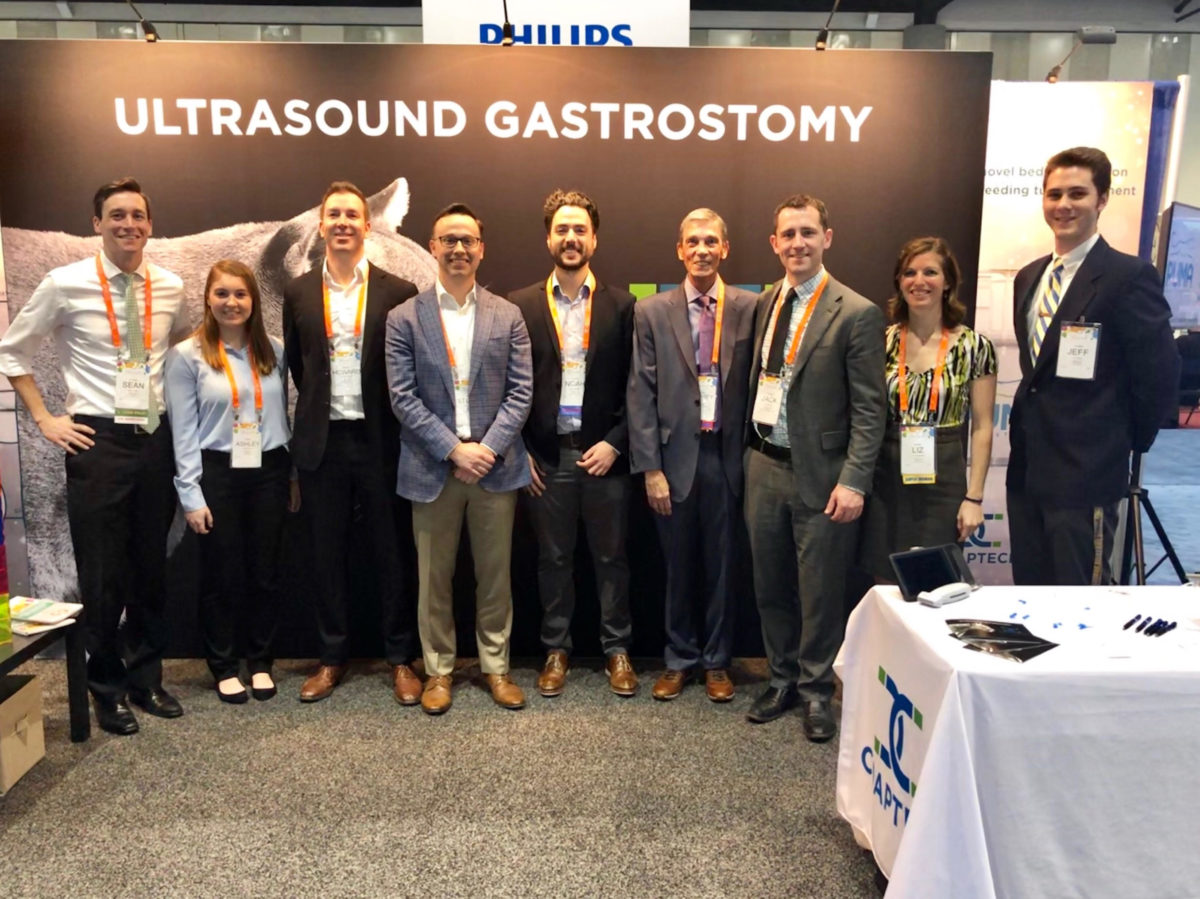Medical device startup CoapTech‘s pediatric version of PUMA-G, its ultrasound-based device already available and FDA-approved for adults, was recently cleared for clinical testing at Children’s Hospital of Philadelphia, DC’s Children’s National Medical Center and Columbia NewYork-Presbyterian Hospital in New York City.
The study seeks to prove that the device, which the company has said allows for safer placement of pediatric feeding tubes, significantly reduces radiation exposure to children. Essentially, when a child needs a feeding tube, a CT scan is required to get X-ray images of the stomach that help verify the tube’s best placement after a procedure. Studies have shown show that such radiation exposure is significant enough to warrant concern. PUMA-G uses ultrasound and magnets to visualize tissue and organs in real-time, avoiding the need for possibly carcinogenic radiation exposure.
“It’s one of those things where that radiation exposure isn’t going to immediately generate cancer, but 30 years down the road, the risk factor in kids is much higher,” Jack Kent, CoapTech’s chief commercialization officer, told Techncal.ly.
The 15-person team working out of LaunchPort at City Garage in Port Covington, along with several other Baltimore medical device companies, is excited to start the trials later in the spring. The team expects the clinical trials to be done at the end of 2022, or early 2023 at the latest.
The National Institute of Health awarded the company $1.6 million in 2020 for this clinical trial round and pediatric PUMA-G development.
Because children are considered a special patient population by the FDA, previous approval of PUMA-G doesn’t expedite the process to full FDA approval of a new device. The only real benefit is the device is still in the gastrointestinal branch of the FDA so Coaptech can hope for some familiarity with the novel technology.
“We want our clinical data to demonstrate what we think is gonna happen,” Kent said. “[PUMA-G Peds System] is safe and we’re gonna reduce radiation.”







